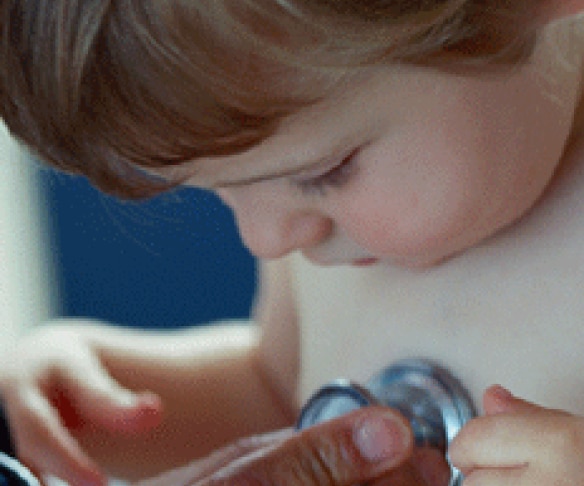What is a food allergy? Food allergies happen when the body’s immune system reacts negatively to proteins found in a food and creates symptoms like gastrointestinal problems including abdominal pain, vomiting, colic and diarrhea. Your baby also might have respiratory symptoms such as runny nose, cough, sneezing, and breathing difficulties, or skin irritations—like rashes or hives. This article will help you understand food allergies and possible ways to help reduce risks.

You may be able to reduce your baby’s risk of developing allergies by waiting until at least 4 months before introducing food. Breastfeeding during that time is especially protective. When it's time for solid foods, including common food allergens is OK for most babies, as long as the foods are developmentally appropriate. Be sure to ask your doctor about food allergens when introducing foods.
In unusual cases, babies may become sensitized to very small amounts of food proteins that are carried in breastmilk. If you suspect your baby is having an allergic reaction to your breastmilk, have a talk with your baby’s doctor to discuss symptoms and remove the likely triggers from your diet.
So, is it an Allergy or an Intolerance?
We know the difference is confusing. Food allergy reactions have more to do with the immune system and may happen quickly—within minutes or hours after eating—and can include symptoms such as hives, pale skin, vomiting, diarrhea, and breathing problems. Reactions can happen even when only a very small amount of food is eaten, touched or even inhaled. The most common foods causing allergies in the US are peanuts, treenuts, milk, egg, wheat, soy, fish, shellfish and sesame.
Food intolerances are reactions to foods inside the digestive system (and don’t involve the immune system). Lactose (a sugar found in milk) intolerance is an example of food intolerance in adults. Usually, small amounts of the problem food can be eaten before symptoms appear. Some symptoms might be gas, stomachaches, bloating and diarrhea.
The only way to know what your baby is experiencing is to talk with their doctor and discuss your concerns.







